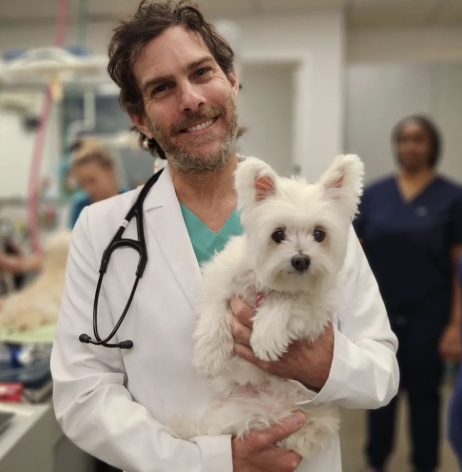What Dog Vaccines Are Required in Greenwich, CT
Vaccinations are a cornerstone of canine health, providing protection against life-threatening diseases and ensuring the safety of your pet, other animals, and the community. In Greenwich, Connecticut, there are specific vaccination requirements and best practices that every dog owner should be aware of. This article outlines the required vaccines, explains their importance, and offers guidance on proper dog care in the area.

Required Dog Vaccines in Greenwich, CT
In Greenwich, the following vaccines are mandated or strongly recommended for dogs:
1. Rabies Vaccine (Mandatory)
The rabies vaccine is required by law in Greenwich and throughout Connecticut. All dogs must receive their first rabies shot by the age of 3 months and follow up with booster shots as recommended by a veterinarian, typically every one to three years.
- Why It’s Important: Rabies is a fatal disease that affects both animals and humans. Vaccination is critical for preventing outbreaks and ensuring public safety.
2. Distemper Vaccine
The distemper vaccine is part of the combination DHPP vaccine (distemper, hepatitis, parvovirus, and parainfluenza).
- Why It’s Important: Canine distemper is a highly contagious and often fatal disease that affects a dog’s respiratory, gastrointestinal, and nervous systems.
3. Parvovirus Vaccine
Also included in the DHPP vaccine, parvovirus is a critical component of a dog’s immunization schedule.
- Why It’s Important: Parvovirus is a severe and often deadly virus that causes gastrointestinal distress and dehydration. It is highly contagious among dogs.
4. Bordetella Vaccine (Recommended)
Bordetella bronchiseptica, a leading cause of kennel cough, is a common concern for dogs in communal environments.
- Why It’s Important: Dogs frequently in contact with others—at kennels, dog parks, or grooming facilities—are at higher risk. Vaccination reduces the likelihood of respiratory infections.
5. Leptospirosis Vaccine (Recommended)
Leptospirosis is a bacterial disease that can be transmitted from animals to humans.
- Why It’s Important: Dogs exposed to wildlife or standing water are at higher risk. Vaccination protects dogs and minimizes the risk of zoonotic transmission.
6. Lyme Disease Vaccine (Recommended)
Lyme disease is prevalent in Connecticut due to the high population of ticks in the region.
- Why It’s Important: Protects against a debilitating disease caused by tick bites, common in wooded and grassy areas of Greenwich.
Why Vaccination Is Crucial for Your Dog’s Health
Protection Against Deadly Diseases
Vaccinations help prevent diseases that can cause significant suffering, high veterinary costs, or death. For example, rabies and distemper are almost always fatal without vaccination.
Community Safety
Vaccinating your dog protects other pets and people in the community by reducing the risk of disease transmission.
Legal Compliance
Failing to vaccinate your dog against rabies can result in fines, legal consequences, and quarantine of your pet in the event of a bite incident.
Proper Dog Care in Greenwich, CT
Veterinary Clinics and Vaccination Services
Greenwich is home to several veterinary clinics and animal hospitals that provide comprehensive vaccination services. Here are a few options:
- Greenwich Animal Hospital
- Location: 430 W Putnam Ave, Greenwich, CT 06830
- Phone: (203) 869-0534
- Services: Full-service veterinary care, including vaccinations.
- North Street Veterinary Clinic
- Location: 207 North St, Greenwich, CT 06830
- Phone: (203) 869-6316
- Services: Preventative care, vaccinations, and health consultations.
- VCA Davis Animal Hospital
- Location: 2051 W Main St, Stamford, CT 06902
- Phone: (203) 327-7755
- Services: Vaccinations, wellness exams, and emergency care.
Tips for Keeping Your Dog Healthy
- Follow a Vaccination Schedule: Work with your veterinarian to establish and maintain a vaccination routine tailored to your dog’s age, lifestyle, and risk factors.
- Maintain Regular Check-Ups: Schedule annual veterinary visits to monitor your dog’s overall health.
- Prevent Parasites: Use flea, tick, and heartworm preventatives year-round, especially given Connecticut’s tick prevalence.
- Proper Nutrition: Provide a balanced diet suitable for your dog’s age, size, and activity level.
- Exercise and Socialization: Ensure your dog gets regular exercise and social interaction to promote physical and mental well-being.
- Dental Care: Brush your dog’s teeth regularly and provide dental treats or toys to maintain oral hygiene.
Vaccine Administration Tips
- Choose the Right Time: Schedule vaccinations when your dog is healthy and stress-free.
- Watch for Side Effects: Mild side effects like lethargy or soreness at the injection site are normal. Contact your vet if severe reactions occur.
- Keep Records: Maintain a record of all vaccinations, as proof may be required for travel, boarding, or licensing.
Licensing Requirements
In Greenwich, all dogs over 6 months old must be licensed annually. Proof of a current rabies vaccination is required for licensing.
Conclusion
Vaccinating your dog is essential for their health, the safety of the community, and compliance with Greenwich regulations. By staying informed about required and recommended vaccines, working closely with a trusted veterinarian, and maintaining proper care practices, you can ensure your dog leads a healthy and happy life. For more detailed guidance, consult your local veterinary clinic and visit reliable resources like the American Veterinary Medical Association (AVMA) or the Centers for Disease Control and Prevention (CDC).
